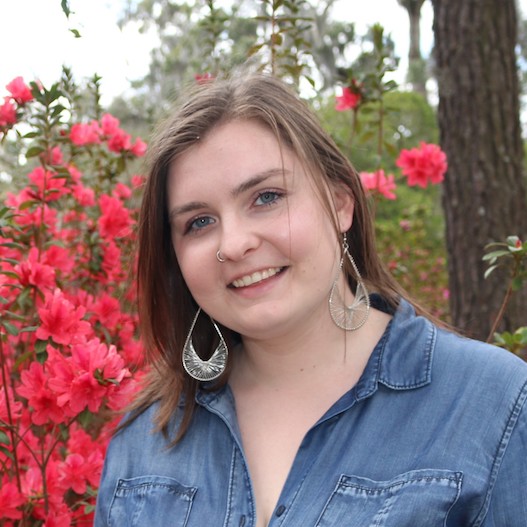2021 FACT Fellows
Itunu Adedeji
Florida Agricultural and Mechanical University
Title: Development of a data-driven modeling framework to determine watershed vulnerability to in-stream bacteria pollution
Abstract:
Water quality is inextricably linked to quantity, and a better understanding of their interplay is imperative for the improvement of overall environmental health. Environmental data like climatic, hydrological, water quality, land use etc. data are often voluminous, heterogenous, complex and nonlinearly interrelated. Also, conducing environmental model experiments often require advanced high-performance computing (HPC) like Graphics processing units (GPUs) and parallel processing for the simulation of test scenarios which drastically improves computational efficiency. I plan to use ArcGIS, R and Python for data gathering, exploration, visualization, and integrated modeling using FAIR data and open-source coding principles. I will utilize the HPC technology to develop spatially explicit machine learning models that predicts watershed vulnerability to bacteria pollution in various watersheds, under the impact of non-stationary stressors like land-use and climate change. This project will be beneficial to students via developed teaching modules and training workshops.

Amber Jones
Utah State University
Title: Open Source Tools to Improve Automation of Aquatic Sensor Data Post Processing
Abstract:
Sensors measuring environmental phenomena at high frequency generate data of increasing volume, resolution, and complexity, presenting challenges for data management and analyses. Quality control post processing for sensor data is typically performed manually, which is a tedious and time consuming, but necessary, step for researchers and practitioners operating sensor networks. I am working to improve automation of sensor data quality control post processing using data science approaches to identify anomalies and perform corrections. The cyber training will enable me to improve the findability, accessibility, interoperability, and reproducibility (FAIR) of this work. This includes development of scripts and a code package for automating post processing that will be relevant to researchers and scientists along with practitioners and technicians who manage and analyze high temporal frequency data. I also plan to develop educational materials for use in college courses and trainings on data and analysis workflows that use FAIR best practices.

Alexis Swanson
North Carolina State University
Title: Regional Variability of Soil Properties and Erodibility Parameters of Streambanks: An Empirical Approach and its Implications on Erosion Rate Predictions
Abstract:
Erosion in streams is detrimental to ecosystems, threatens the safety of humans and requires a substantial financial commitment for its mitigation. Understanding erosion can aid in enhancing stream response to restoration practices. My PhD project addresses the limitations of the excess shear stress equation, which is commonly used to represent the rate of this erosion. Currently, I am finalizing a predictive relationship for critical shear stress using soil physical properties for the North Carolina Piedmont Region. Additionally, I am examining the relationship between applied boundary shear stress and erosion rate and investigating how soil physical properties affect this relationship. The FACT fellowship program will provide the tools to ensure my research project is findable, accessible, interoperable, and reusable. This will be accomplished by publishing data, using freely available programs for project methodology, developing a free web-based application, and transferring the skills learned to my colleagues at North Carolina State University.

Qianjin Zheng
Texas A&M University, Kingsville
Title: Developing A Data Discovery and Integration Workflow to Study the Effects of Natural Infrastructure Water Storage on Continental-scale Hydrologic Dynamics
Abstract:
Numerous studies have revealed how small waterbodies – the natural infrastructure – mediate watershed resilience against floods and droughts. My Ph.D. dissertation aims to develop two contrasting hydrologic model configurations using a prototype WRF-Hydro version of the National Water Model, examining how small surface water storage systems affect the hydrologic system dynamic across a drought-to-flood gradient in the Mississippi River Basin. To achieve this goal, I plan to develop an end-to-end semi-automatic workflow that performs all data discovery and data-model integration tasks in a web environment using High Performance Computational (HPC) resources. The National Science Foundation FACT fellowship will allow me to design and implement this workflow in a widely recognized geospatial cyberinfrastructure mygeohub, while directly contributing towards the completion of my Ph.D. As a part of this fellowship, I will also develop an online tutorial enabling the best reproduction of my code, data, and model outputs.
